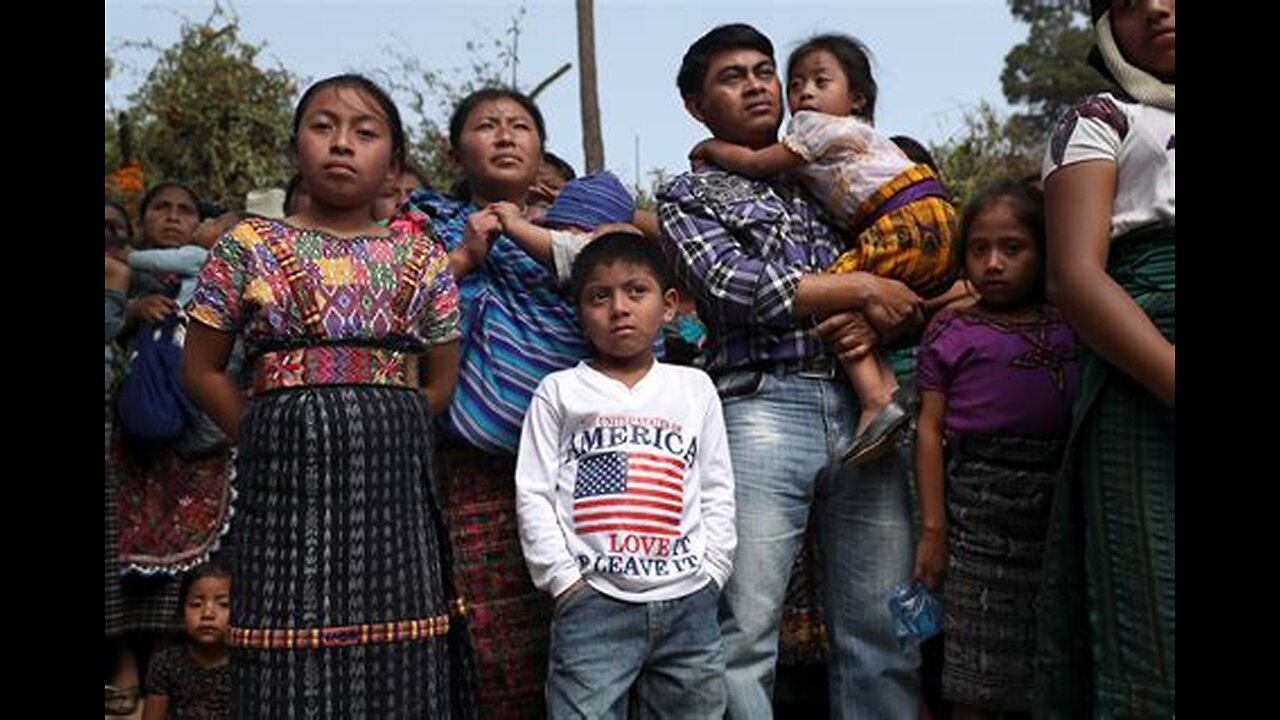Premium Only Content

Paths to Lawful Status for Undocumented Survivors of Abuse: An Overview of VAWA and U Visa Options
(Insights into Immigration Relief for Victims of Domestic Violence and Other Crimes in the United States)
Introduction: Hope Through Safe Legal Channels
In the U.S., undocumented individuals often hesitate to seek help when trapped in abusive relationships for fear of deportation or retaliation by an abusive partner. However, federal law provides critical pathways for undocumented survivors of abuse to obtain lawful immigration status. Central among these are the Violence Against Women Act (VAWA) self-petition and the U visa for victims of qualifying crimes. Although these processes can be intricate, they offer hope, dignity, and a potential path to permanent residency for those bravely stepping forward to break the cycle of violence.
This article will shed light on these two major options—VAWA and U visa—including how they work, eligibility requirements, and why legal guidance is strongly advised. Whether you’re a survivor, advocate, or concerned ally, understanding these mechanisms can open doors to safety and lawful status.
1. Understanding VAWA: A Lifeline for Survivors
1.1 What Is VAWA?
The Violence Against Women Act (VAWA) was initially introduced to protect women experiencing domestic abuse, but it has evolved to cover all genders facing domestic violence, battery, or “extreme cruelty” from a U.S. citizen or Lawful Permanent Resident (LPR) spouse, parent, or child. If one qualifies, they may file a self-petition with U.S. Citizenship and Immigration Services (USCIS) without the abuser’s knowledge or cooperation.
Key Principle: VAWA recognizes that victims shouldn’t rely on abusers to obtain or maintain lawful status. By self-petitioning, survivors remove the power of immigration sponsorship from their abuser’s hands.
1.2 Eligibility and Requirements
To file a VAWA self-petition, survivors must demonstrate:
1. Qualifying Relationship
• Abuser is a U.S. citizen or LPR spouse, parent, or child.
• The marriage (if married to the abuser) must be entered in good faith, not solely for immigration.
2. Residence with the Abuser
• Proof they lived with the abuser at some point (not necessarily continuously).
3. Good Moral Character
• Basic moral and legal standards, typically verified via background checks or letters of reference.
4. Abuse or Extreme Cruelty
• Documentation of physical violence, emotional battery, or severe cruelty. This can include police reports, medical records, affidavits from friends/family, or other evidence of harm.
1.3 Outcomes and Benefits
An approved VAWA petition often leads to:
1. Work Authorization: The ability to secure employment legally while the case is processed.
2. Green Card Pathway: Eventually, survivors may adjust status to become Lawful Permanent Residents.
3. Protection from Removal: Often, there’s a temporary safeguard preventing deportation during the application.
Tip: The process is confidential, and USCIS is legally barred from notifying the abuser about the self-petition, offering survivors a safer route to independence.
2. U Visa: Relief for Victims Who Assist Investigations
2.1 What Is the U Visa?
A U visa is designated for victims of specific crimes (including domestic violence, sexual assault, and other serious offenses) who assist law enforcement or prosecutors. Created to empower survivors to report crimes without fearing deportation, the U visa can:
• Encourage cooperation with authorities.
• Offer a route to lawful status, eventually culminating in a green card if all conditions are met.
2.2 Key Eligibility Factors
1. Qualifying Crime Victim
• The applicant must have experienced mental or physical abuse from a listed offense such as domestic violence, kidnapping, sexual exploitation, etc.
2. Helped or Willing to Help Authorities
• Must possess or be willing to provide helpful information for the criminal investigation or prosecution.
3. Certification from Law Enforcement
• A police department or prosecutor’s office must sign a form confirming the victim’s helpfulness. This is often the biggest step.
4. Admissibility or Waivers
• Applicants must not be disqualified by serious criminal history. Some grounds of inadmissibility can be waived.
2.3 U Visa Advantages
U visa holders can eventually adjust to lawful permanent residency after three years, plus:
• Work Permit: Once the U visa petition is granted, they can legally work in the U.S.
• Protected Spouses, Children, or Parents: Certain family members may join or receive status based on the applicant’s principal case.
3. Overcoming Fear and Complexity: Why Legal Help Is Crucial
Both VAWA and the U visa involve detailed applications requiring proofs of identity, relationship, abuse, and moral character. For a survivor who is simultaneously wrestling with trauma, legal counsel is nearly indispensable. Pro bono or low-cost assistance may be found via immigrant advocacy nonprofits, domestic violence shelters, or specialized law clinics.
Common Pitfalls:
• Insufficient evidence of cohabitation or “good faith marriage.”
• Lack of police or medical records, especially if survivors never reported the abuse.
• Fear that applying may risk the abuser’s retaliation. (VAWA tries to mitigate this through confidentiality and sealed proceedings.)
4. The Broader Context: A Beacon of Hope Amid U.S. Immigration Complexity
4.1 Intersection of Abuse, Immigration, and Fear
Many undocumented individuals remain locked in abusive relationships because the abuser wields immigration status as a weapon. VAWA and U visas disrupt this cycle, reaffirming that personal safety supersedes precarious legal standing.
4.2 Societal and Community Impact
1. Empowerment: Survivors can break free from oppression, regaining self-worth and forging stable lives in the U.S.
2. Community Ties: Freed from secrecy or forced isolation, survivors can integrate positively, building safer families and neighborhoods.
3. Law Enforcement Cooperation: The U visa fosters trust between immigrant communities and police, strengthening public safety overall.
Conclusion: Charting a Path Toward Safety and Status
For undocumented survivors facing abuse, knowledge of VAWA and U visa frameworks can be lifesaving. These legal avenues, though intricate, permit a break from violence without risking immediate deportation or abuser manipulation. The chance to self-petition, maintain confidentiality, and ultimately secure a green card or work authorization underscores the U.S. recognition of basic human rights, irrespective of immigration status.
Key Reminders:
• Evidence is essential: Keep records, photos, testimonies, or official documents that substantiate the abuse, cohabitation, and relationship details.
• Seek professional guidance: Skilled attorneys or nonprofits specialized in immigrant and domestic violence law can navigate the complexities, ensuring every required piece is in place.
• Stay Informed: Immigration policies evolve. Survivors should keep updated through official channels or legal counsel about new guidelines or expansions in VAWA/U visa provisions.
Final Encouragement: No one deserves to remain in fear, silence, or danger due to uncertain legal status. Programs like VAWA and the U visa stand as crucial lifelines—reminders that behind the labyrinth of immigration laws, compassion and justice can still prevail. If you or someone you know faces abuse, remember that help exists, and you have a genuine path to both safety and long-term lawful status in the U.S.
-
 1:04
1:04
FragmentsOfTruth
5 days agoThe Hidden Truth About Sugar: How It Shuts Down Your Immune System
246 -
 21:47
21:47
Film Threat
4 hours agoLIVE FROM MEGACON IN ORLANDO, FLORIDA! | Film Threat Live
25.1K -
 4:20:46
4:20:46
Right Side Broadcasting Network
9 hours agoLIVE: President Trump Meets With Japanese Prime Minister Ishiba - 2/7/25
193K34 -
 2:01:23
2:01:23
The Dilley Show
6 hours ago $15.32 earnedVought Confirmed, Elon Loves Trump and Q&A Friday! w/Author Brenden Dilley 02/07/2025
73.4K15 -
 1:57:39
1:57:39
The Charlie Kirk Show
6 hours agoThe Greatest Deportation Wave in History + AMA | Homan | 2.7.2025
139K82 -
 2:02:15
2:02:15
LFA TV
21 hours agoMAINSTREAM MAGA! | LIVE FROM AMERICA 2.7.25 11am
115K83 -
 1:17:37
1:17:37
Game On!
7 hours ago $2.72 earned5 SHOCKING Super Bowl Stats and Trends!
66K4 -
![[Ep 601] USAID / CIA | Panama | Guest Sam Anthony of [your]NEWS](https://1a-1791.com/video/fwe2/b0/s8/1/E/U/D/u/EUDux.0kob-small-Ep-601-USAID-CIA-Panama-Gue.jpg) 2:01:29
2:01:29
The Nunn Report - w/ Dan Nunn
3 days ago[Ep 601] USAID / CIA | Panama | Guest Sam Anthony of [your]NEWS
47.4K11 -
 58:57
58:57
The Dan Bongino Show
9 hours agoDOGE Uncovers More Corruption Than We Ever Thought Possible (Ep. 2418) - 02/07/2025
975K2.32K -
 47:52
47:52
The Rubin Report
7 hours agoCalifornia Businessman Makes Joe Rogan Go Quiet with Never-Before-Told Details of LA Fires
115K41